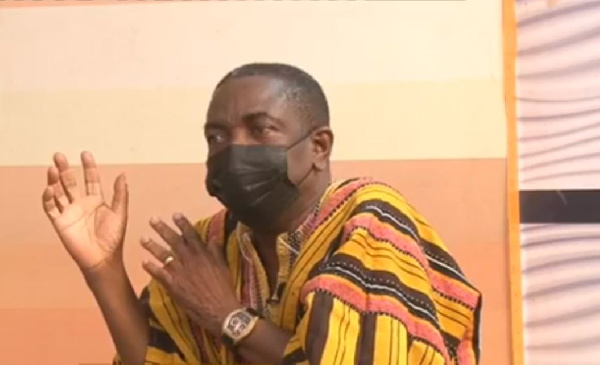
Kwesi Pratt Jnr noted on Metro TV’s Good Morning Ghana program that the two cases are eerily looking similar which gives him a cause to worry.
Pratt noted that just as the Supreme Court set aside a ruling by the Fast Track High Court in the case of Tsatsu Tsikata, the same court also overturned a verdict by the High Court in the opuni case.
“It seems to me that this case is increasingly beginning to look like the Tsatsu Tsikata case. All the ingredients are there. Remember the Tsatsu Tsikata case, he is tried before the Fast Track High Court, he applies at the Supreme Court and says the Fast Track court is an illegality, that position is upheld by the Supreme Court. Eventually, a judge who had sat as a judge on the Fast Track court is brought unto the panel for the review and things change,” he said.
Commenting on the specific case of Justice Honyenuga’s reinstatement as the trial judge for the case, Kwesi Pratt Jnr struggled to understand how a judge’s view in private life could be decoupled from his position on a case that has political leanings.
Pratt said that is important judges keep abreast with the view that their actions elsewhere could impact on how they are viewed when sitting on a case.
Pratt said that Justice Honyenuga’s statement as a chief cannot be delinked from the case as there exists some form of connection.
He, therefore, advised judges to be wary of their positions in society and not make comments that give off certain impressions.
“Judges ought to know that what they do on the bench and beyond the bench becomes important. Decisions that they make can have serious political and social implications. We cannot have a judge who is standing on the pulpit and saying things and then the next day he is sitting on the bench making other pronouncements that ignore the earlier pronouncement that I made.
"Judges need to have a certain level of decorum. The things that I’m allowed to say, judges cannot say it. By their own vocation and so on, they are not even free to enjoy certain things. I can go to everybody's house and enjoy food but judges cannot do the same.
“The defence in this has made an argument from many angles. One of the angles are statements made by the presiding judge as a chief and not as a judge. When he was a chief, was he not the same person who is a judge. How do you do the disaggregation,” he said.
Pratt’s remarks were relative to the reinstatement of Justice Honyenuga as presiding judge for the trial of Dr. Stephen Opuni and some others over the purchase of fertilizers for COCOBOD.
The apex court had ruled that Justice Honyenuga had shown clear bias and was thus prohibited from sitting on the case but the court in its latest ruling following an application for review by the Attorney General set aside its earlier ruling in a 4-3 verdict.
It will be recalled that Tsatsu Tsikata was jailed in 2008 for willfully causing financial loss to the state when he was the head of the GNPC.
He was granted amnesty by President John Agyekum Kufuor but rejected the offer. Eight years on from when he was jailed, the Court of Appeal ruled that the High Court unjustly jailed Mr Tsikata and subsequently cleared him of any wrongdoing.
Read Full Story















Facebook
Twitter
Pinterest
Instagram
Google+
YouTube
LinkedIn
RSS